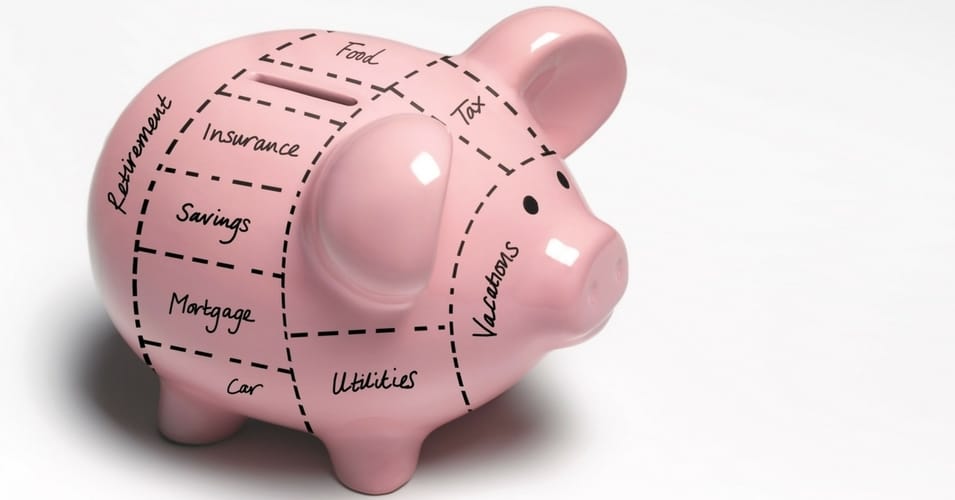
Until and unless you have been through the process of purchasing a home, and even then, its not something we tend to do often, I find that my clients are not always properly prepared when looking at all the costs associated with the purchase. We tend to look at the main things, the purchase price, costs associated with the mortgage, moving costs. However, this is one of the single most important pieces of advice I can give anyone looking to purchase a new home. When budgeting for the house, don't stop with principal, interest, taxes, and insurance; add in utilities, cost of commuting and upgrades.
Call the utility companies that service the house you are considering and ask for an estimate of what the cost will be.
If you are moving further away from the places you frequently visit, how much more will you spend on gas? Take all these expenses into account when allocating a budget for a new home.
I find all too often clients forget to take into account half the expenses that they should – just because they are not necessarily obvious in relation to the moving process.
I find all too often clients forget to take into account half the expenses that they should – just because they are not necessarily obvious in relation to the moving process.
Below is a more exhaustive list of items you need to budget for. Buying or selling your home is a pretty stressful life journey, you can make that litte bit less stressful if you have all the finances and money stuff organised. Hopefully below will help you think about some items that you perhaps would otherwise forget.
Justin :)
COSTS AND FEES FOR THE BUYER:
LEGAL FEES AND DISBURSMENTS:
These fees are charged by a lawyer or notary, and usually range from $100-$1200 depending on the complexity of the deal. Your lawyer or notary will arrange all transfers, payments and other factors of the funds for the real estate transaction.
PROPERY OR LAND TRANSFER TAX: This is applied on all purchases of homes. It is a tax that is calculated at 1% on the first $200,000 and 2% on the remainder. There is an exception when the buyer is a first time homebuyer – if the fair market value of the residence is up to $475,000, this transfer tax will be exempt.
PROPERTY TAXES: This should come out of your legal fees, and your notary will take care of this. You will owe or receive a prorated amount for the remainder of the year’s property taxes.
UTILITY PAYMENTS/HOOK -UP FEES: You will have to pay to have your utilities connected to your new property.
SURVEY FEE: Your lender may require an up-to-date survey of the property. If the seller doesn’t provide you with one, you will pay anywhere from $250 to $350 for one.
HOME INSPECTION FEE:It is always a good idea to get your new home inspected before you remove subjects. It can be an invaluable way to ensure the safety and structural integrity of your investment.
APPRAISAL FEE: Before your lender approves your mortgage, you may be required to get an appraisal. This can be anywhere from $250 to $500.
MORTGAGE LOAN INSURANCE PREMIUM (IF LESS THAN 25% DOWN): If you get a mortgage where you pay less than 20% for the down payment, you will have to get mortgage loan insurance. This insurance rate can range from 1.75% to 3.25%. There is also a mortgage loan insurance application fee associated with this insurance.
MOVING EXPENSES:These costs can vary, depending on the option to hire a moving service or to use family and friends and a van rental. This can cost anywhere from $200-$2000.
MOVE OUT FEES (CONDO BUILDINGS): This is usually in place to lock out the elevator.
RENOVATIONS AND REPAIRS: Cost will vary depending on your needs and wants.
PROPERTY INSURANCE: You will pay monthly or annually for insurance protection on your new property. Value is based on the area you live, the property value, the land, etc. It can range from $500+ per year.
REAL ESTATE AGENT FEESThe seller is responsible to pay these fees, unless you negotiate something differently in order to close a deal.
MISCELLANEOUS FEES: If buying in a heritage neighborhood, you are responsible to verify that there is no oil tank underground on the property. If there is, you are responsible to remove it. This can cost upwards of $2000.Other fees can include carpet cleaning, carpet replacement, any items that need to be repaired, repainted, fixed, modernized, finished etc.
COSTS AND FEES FOR THE SELLER:
LEGAL FEES:
As noted above, the lawyer/notary fees for closing the sale will vary according to the intricacy of the transaction, but they should range from $500-$700. Again, your lawyer or notary will arrange the transfer of these funds.
REAL ESTATE AGENT FEES: In Ontario, typical commission is 4.5%-5% of the sale price. 2.5% approx is paid to the listing agent and 2.5% to the buyer's agent.
MOVING EXPENSES: As mentioned above, these costs can vary, depending on the option to hire a moving service or to use family and friends and a van rental. This can cost anywhere from $200-$2000.
MOVE OUT FEES (CONDO BUILDINGS):Again, this is usually in place to lock out the elevator.
MISCELLANEOUS FEES: If you are selling in a heritage area, sometimes factors such as having an Oil Tank Scan to verify that there is no oil tank on the property. This can cost from $150-$200.Other fees can include carpet cleaning, any items that need to be repaired, repainted, fixed, modernized, storage, staging, tidied etc

